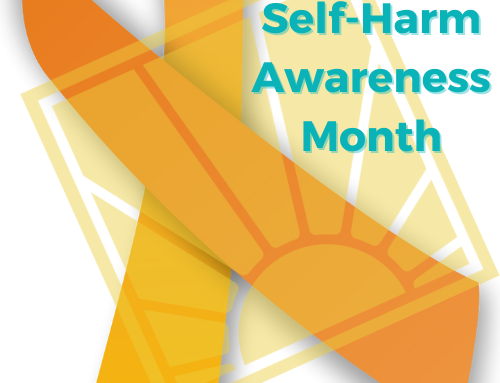While adolescent depression shares many symptoms with adult depression, there are some differences as well. The main sign of a depressed state is a persistent feeling of sadness, hopelessness or worthlessness. These feelings of despair can manifest in a number of ways that include self-harming behavior, shoplifting, suicidal ideation, gestures or attempts, and isolation. The following are some potential signs of teen depression:
- School avoidance (e.g. sleeping in and refusing to go to school, or pretending to go to school but cutting class)
- A change in sleep patterns i.e sleeping more or less or changes in sleep pattern
- Apathy or frequent boredom
- Slow or difficult communication
- Somatic complaints such as headaches, stomachaches, back pain, or fatigue
- Difficulty sustaining attention
- Indecisiveness
- Sudden drop in school performance
- Seemingly excessive or inappropriate guilt
- Not attending to responsibilities, being late for classes or work, not doing homework
- Changes in eating patterns or weight, especially not eating or overeating with dramatic weight loss or gain
- Difficulty remembering
- Exaggerated worry about death
- Defiant or non-compliant behavior
- Anxiety
- Talk of suicide
- Persistent sadness or hopelessness
- Use of alcohol or drugs and promiscuous sexual activity
- Withdrawal from family (e.g. staying in room with door shut) and/or friends
- Changes in dress without regard to appearance
- Poor grooming or hygiene
If you suspect your child is depressed, a thorough psycho-educational assessment (including testing and an in-person consult with a mental health professional) is highly recommended. This assessment should provide you with information that is critical for selecting the appropriate treatment for your child.
Three Options for Treatment
Depression may have environmental and/or biological causes. Fortunately, both environmentally based and biologically based depression can be treated. Treatment options include outpatient therapy, psychopharmacology, and in-patient or residential treatment.
For mild to moderate depression, outpatient talk therapies can help the teen understand and articulate difficult feelings and develop more effective coping mechanisms. Since many teens are resistant to therapy, a depressed adolescent might need to try a variety of options to find the most effective one for him or her. Group therapy can be less threatening for some teens than individual therapy because the pressure is not solely on them to talk or disclose and because it can be comforting and normalizing to hear that their peers are struggling too. Cognitive behavioral therapy (CBT), dialectical behavioral therapy (DBT) and other therapies can be effective for teens struggling with depression. The key to any therapy being effective, however, is the ability of the therapist to bond with the depressed teen. This can take time and can be the most difficult, but the most productive, part of treatment. The simultaneous involvement of parents in therapy (either separately or in a family therapy setting) can also be a helpful part of the teen’s healing journey because it addresses more systemic causes of depression. Parental involvement also demonstrates support and can take some of the attention and pressure off of the teen. It communicates that we are in this together because we have a problem, (rather than you are the problem.)
Medication has also been proven to help certain teens with depression, though it is generally recommended that medication be used in conjunction with therapy. The only antidepressant that is officially FDA approved for use with teens is flouxetine hcl, or Prozac, a well-known SSRI. Antidepressant medication has been linked to an increase in suicidal feelings in certain studies; because of this the FDA has been very careful about approving anti-depressants for use with adolescents and requires warning labels on medications used for this population. But the findings are controversial and physicians generally use their own medical judgment to prescribe flouxetine hcl or other anti-depressants to teenaged patients. Some medications are used to treat the depression itself and others may be used to treat precipitating factors, such as difficulty sleeping. Lack of sleep, which is quite common among teens, especially those prone to depression, can cause or exacerbate depression. Solving the problem of inadequate sleep medically and/or behaviorally (e.g. through healthier nighttime routines; fewer daytime naps; less access to television, caffeine or other stimulants near bedtime, etc.) can reduce depression in teens. If your child does take medication, be sure to follow monitoring protocols carefully, observe your child’s behavior, and insist upon frequent consults with the prescribing physician.
Residential or in-patient treatment is helpful for teens suffering from moderate to severe depression or from depression that co-occurs with other emotional or behavioral issues. Residential settings, such as therapeutic boarding schools and residential treatment centers, have the advantage of 24 hour observation and care, interdisciplinary (i.e. educational, therapeutic, and medical staffing), as well as access to milieu and experiential therapies. This means that treatment tends to be both intensive and holistic. Young people suffering from symptoms such as cutting or suicidal ideation can be kept relatively safe because of the 24 hour supervision. Students who are school avoidant tend to miss less school during treatment when they are in a residential setting. Also, the tight link between various departments facilitates well-informed treatment and medication decisions because the child’s response to these therapies can be observed throughout the day from a number of perspectives. While residential treatment is not necessary for every depressed teen, it can provide a safe and robust option for young people with a persistent or serious depressive struggle. Since residential treatment programs vary in terms of quality and type of care, it is recommended that parents consult with their therapist or an educational consultant to select the appropriate program for their child.

